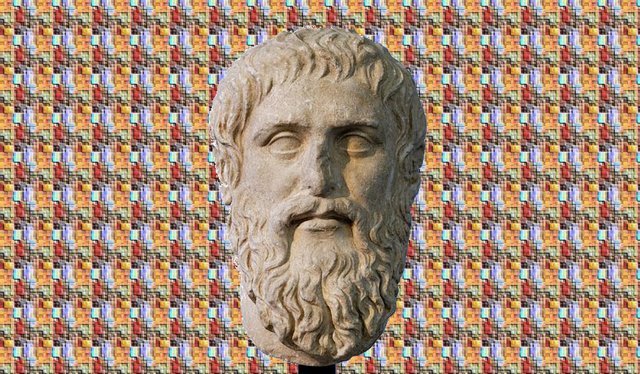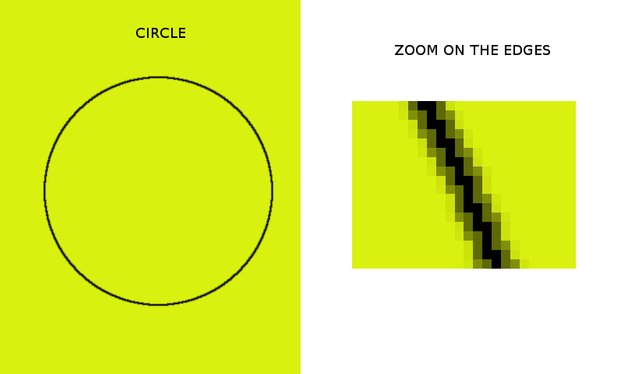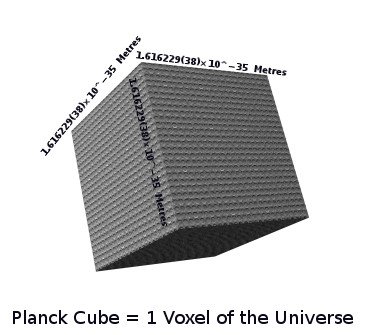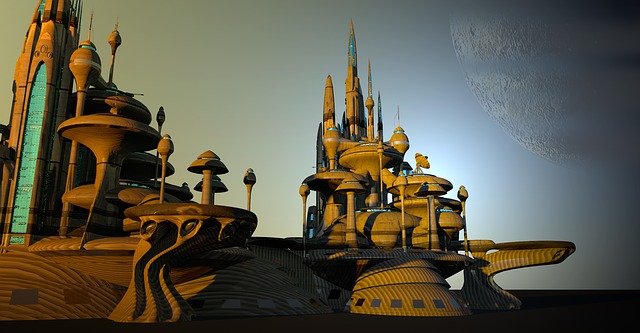Secrets of the Universe (PART 4.) - Rejecting Platonism

Let's continue this philosophical series, after all the other things I've talked about. In this part I would like to share my views about Platonism, why I think it's wrong, and why I think that this chase of perfection is quite devastating to society if it's not thought out well.
Here are the previous parts of the series, make sure you read them so you know my philosophical theory:
- https://steemit.com/philosophy/@profitgenerator/secrets-of-the-universe-part-3
- https://steemit.com/philosophy/@profitgenerator/secrets-of-the-universe-part-2
- https://steemit.com/philosophy/@profitgenerator/secrets-of-the-universe-part-1
Rejecting Platonism
Platonism in short is a philosophy that postulates that reality is made up of 2 parts:
- A perfect world of abstract forms
- An imperfect world of objects
In short this is what Platonism is, an theory that asserts that reality is dual, and that the world we see around us is imperfect, however there is a perfect world from where it all originates. (Sort of like a claim for a God, or a Godly realm from where things originate).
Now needless to say, I disagree with this philosophy very much, and not just that, I also think that this kind of thinking is very dangerous.
1) No Perfection
First of all I don't believe in perfection. It's a subjective view, what is "perfect" for somebody, might not be "perfect" for others, and also perfection as such is impossible, because everything can be improved upon.
Example: If you have a "perfect" food that tastes very good, you can always add or subtract something from it to make it better. Be that atom-by-atom reorganizing the food's structure to make it more and more satisfying. And that can be improved, in infinity, you have infinite combinations to choose from.
2) No objects
Secondly, I don't believe in objects. Read the previous parts of the series to get the full explanation why not. Basically, if you believe in perfection, you must believe in a perfect object, that is independent from your sensory capacity, which is just there, ignoring all the laws of physics, and doesn't change at all over time. Not only it's absurd, but it's also unscientific.
Platonism in Math
Now Platonism is basically the foundation of a large part of Mathematics, or Mathematical thinking. Especially of Geometry and Algebra, not so much of Statistics (my field), which is more Reality and Observation based.
The world of forms, take for example a circle: A circle is a perfect 2 dimensional line that is perfectly looped on itself, where the diameter in every single angle is exactly the same length. Also the line itself doesn't have a width, because it's a 1 dimensional concept.
So a perfect circle is described as: Circumference = 2 * π * Radius
It's a perfect conceptual circle in the Platonic realm, and in the Real Realm it looks like this:

It looks perfect on the surface, but if you zoom down, you see the imperfection of the edges. Yes a computer can't render a circle because the display consists of square pixels, and you can't "square the circle", all you can do is to create the illusion of a circle by placing squares in a circular way and then zoom out, so that our imperfect eyes and brains get fooled to think that we see a perfect circle, when it reality we only see squares.
Platonism in Physics
So far so good. However according to Physics, the Universe is also made up of pixels or voxels (3D pixel), where each side is the length of a Planck.

So even if you create a "Perfect" quantum circle made up of quantum particles of the smallest size. You will still end up with tiny tiny cubes or squares packed next together arranged in a circular form.
So the Platonic Circle will never manifest itself in the real Universe, because the Universe is also rendered like a computer. Now is the Universe a Simulation? Many would ask, but that is another topic for another time.
And is the Planck Length the smallest unit? No, because you can still zoom down lower in your imagination, however it's just that Physics can't explain units smaller than that. You can of course zoom down infinitely or zoom up infinitely in theory, but infinity itself will never manifest itself in the real world.
Infinity
So we live in a limited world. We can think about infinity, but it will only be theoretical. Yes if you would have an infinitely small edged square making up the circle, then you can theoretically describe it. Or in a case of a line, a 1 dimensional thing, with an arbitrary length and an infinitely small width. But we know that infinity can't be described nor comprehended by humans.
This is why Calculus has replaced Algebra and Geometry in order to factor in the infinitesimal into the equations. But it still remains theoretical, since nothing abstract from math can be created in the real world.
In a limited world we can't have infinity, and in an imperfect world we cant have perfect shapes. So I reject Platonism.
Platonism in Politics

This is the biggest and most dangerous face of Platonism, when thinkers apply this philosophy to politics. By having a perfect target in their mind, and trying to steer society towards this perfection.
Communism, socialism, all kinds of utopia visions have been founded on this flawed philosophy. All the horrors of the left originate from this flawed thinking, where people idealize a perfect world, and try to bring this into our imperfect world, and as a result they only create massive chaos.
But what is the perfect world? What is the utopia? End of poverty? End of war? What is it exactly? For different people it means different things, but nobody can agree on an "objective" answer. So it's largely subjective, and as the whole world is subjective, there is no way that we can have an absolute consensus on it.
So how can you have a perfect world, when nobody even knows what it means to be perfect, let alone invent policies toward that goal. Every action has an equal opposite reaction.
If your goal is to end poverty, and you want to do that by increasing taxes and giving it out in welfare then:
- More poor people will be spawned in order to get the free stuff (either birthrate increases, or people deliberately become lazy in order to get the welfare)
- The rich becomes poor under the burden of the taxes, and your tax base will shrink, making everyone poor in the end
Besides what is poverty? Where do you draw the line? It's all relative. The bottom 10% of the population is still more richer than it was 200 years ago, due to the advancement of technology.
So what is poverty? There is no objective answer to it, nobody can define it, and by just drawing arbitrary lines in the sand, you are like a dog chasing it's own tail.
Do you define poverty as monetary poverty? Or spiritual poverty or poverty of freedom? Because a 21 century human is definitely monetarily richer than a caveman, however a caveman had more freedom of wealth than a contemporary human, due the the massive expansion of Government. So who is more richer? It depends on perspective.
So all this perfectionism, and chasing utopias, is a serious side-effect of Platonism, whereas nobody can even define a utopia, much less make it become true.
The world will always be imperfect, because it's made up of subjective beings, each going their own way.
Sources:
Copy of Silanion (Marie-Lan Nguyen (User:Jastrow) 2009) CC BY 2.5, via Wikimedia Commons


Great article, I agree with most of it, except define poverty, if you can't fill all your basic needs you are poor (economically). Of course there will be different levels of poverty for example if you can only afford to have one shirt you are poor, but you are probably better off than someone whose prospects of eating today are iffy.
I just edited the article, I forgot to expand on that.
I have actually implied that poverty is relative as well, since you can't know what poverty is.
You can have spiritual poverty, monetary poverty, poverty of freedom, or other.
So a caveman could pretty much go into a goldmine and say that all the gold inside it is his. However you can probably not even access 1 kilogram of gold, in the 21 century.
A caveman had an entire forest to hunt from, while many humans today starve to death.
So freedom is also essential, you cannot just say that having internet and mobile phones makes humans more rich than a caveman, because in many ways a caveman had a wealthier life.
There's no utopia, it's just a buzzword. What's perfect for us may not be for our children. So that's it, we can always build stuff for the better so there's nothing inherently wrong with that.